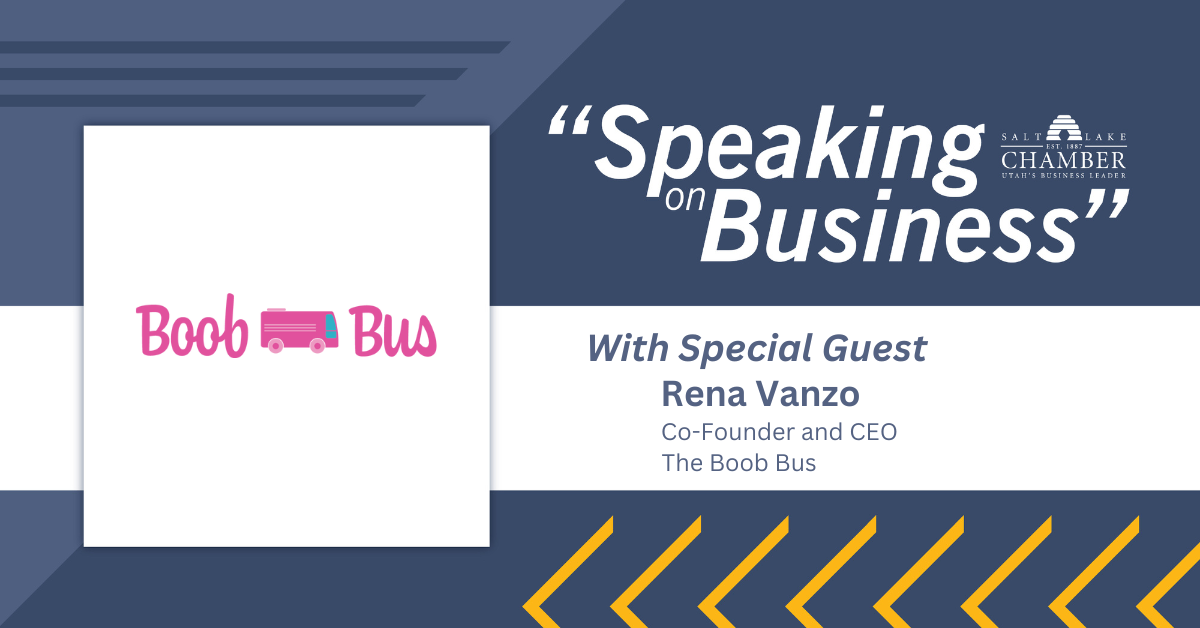In the modern economy, environmental sustainability is one factor in how businesses can stand out and thrive. Each month, the Salt Lake Chamber will highlight a Utah business making positive strides for the environment and our natural resources to encourage support and innovation.
Our feature, Easterseals-Goodwill Northern Rocky Mountain, is all about sustainability. For over 120 years, Goodwill has collected donations, giving items a second life by repurposing and reselling them at affordable prices — all while keeping materials out of landfills. We sat down with Chelle Fried, director of digital marketing and community relations, Laura Schultz, vice president communications, Jason Asher, AVP of retail operations and logistics and Ana Gomez, recycling and logistics manager to learn more about their sustainability efforts.
Can you tell me about the roots of your organization? When did Goodwill start focusing on sustainability, and what sparked that commitment?
Goodwill has always been committed to sustainability, working to keep items out of landfills by giving them a second life. When Edgar J. Helms founded Goodwill, he realized that simply giving things away wasn’t enough — it provided temporary relief but didn’t address deeper issues like unemployment and skill building. Instead, he built Goodwill on the principle of offering a hand up, not a handout. This philosophy naturally evolved over 120 years, making sustainability an essential part of our identity.
Today, our stores are filled with items that might have otherwise been discarded. Even after items leave our retail stores, our extensive recycling program diverts nearly seven million pounds of unsellable goods yearly. Some are sold at a discount in our outlet stores, while others — like textiles, shoes and accessories — are bundled for recycling. We also recycle metals and partner with multiple buyers and organizations worldwide to ensure materials are reused.
How do you encourage sustainability amongst your employees and customers? How has your customer response been?
At Goodwill, we encourage sustainability by making it easy for both employees and customers to be part of the process. We emphasize the value of repurposing, reusing and recycling donations to minimize waste. Employees are trained to carefully assess and find the best alternatives for donated goods through recycling or reselling, and we create partnerships to handle items at scale. For customers, we make sustainability easy by offering quality, secondhand items that extend the life of clothing and other goods, helping to reduce the environmental impact of fast fashion.
The response from customers has been incredibly positive. Many appreciate that their donations are part of a bigger mission to help the community, from funding job training programs to providing affordable goods for others. Some donors even share how meaningful it is to know their loved one’s belongings will be repurposed and have a lasting impact on others. It’s rewarding to see how much people care about contributing to sustainability in such a personal way.
What advice would you give to other organizations wanting to improve their sustainability efforts?
Our advice for businesses looking to improve their sustainability efforts is to start small and find a sustainability champion within the organization. It doesn’t have to be overwhelming. Begin by assessing what you already have, such as excess merchandise or office supplies that could be donated or repurposed. For example, misprinted T-shirts or old cubicles can be given a second life through partnerships with organizations like Goodwill. Instead of throwing things away, businesses can consider alternatives such as recycling or donating them, reducing waste and contributing to sustainability efforts.
Also, businesses don’t have to tackle everything at once. Even small changes, like donating old office chairs or unsold promotional items, can make a big impact. Creating a donation program and involving employees is a great way to engage everyone. Lastly, think beyond just recycling — look for partnerships that can help you find responsible ways to dispose of excess items and support your community at the same time. By making intentional choices, businesses can significantly reduce their environmental footprint while supporting a sustainable future.
What do you do to stay sustainability-minded in your daily lives?
Here’s how different people answered the question:
In my personal life, I make intentional decisions to reduce waste and support sustainability. For instance, I avoid using plastic water bottles, always opting for my reusable bottle, which I refill and clean regularly. I also use canvas bags when shopping and try to donate to Goodwill without using plastic bags. When I need items like camping gear or kitchen supplies, I shop at Goodwill, finding great deals on things like plates, towels and snow gear for my kids or even casserole dishes for delivering meals versus throw away aluminum containers. I even encourage others to donate to Goodwill, helping them see the value in recycling and repurposing items.
I work to change the mindset of others about what’s valuable. For example, my dad was ready to throw away old vintage items, but I reminded him that these things are treasures for others. I believe that items many consider trash can be given a second life; instead of taking up space in landfills, they can benefit others through donations.
I practice sustainability by making small, mindful choices in my day-to-day life, like reusing and recycling, and encouraging others to think more sustainably about their own things. It’s about shifting mindsets and finding new ways to give things value rather than letting them go to waste.To read other sustainability stories, click here.


